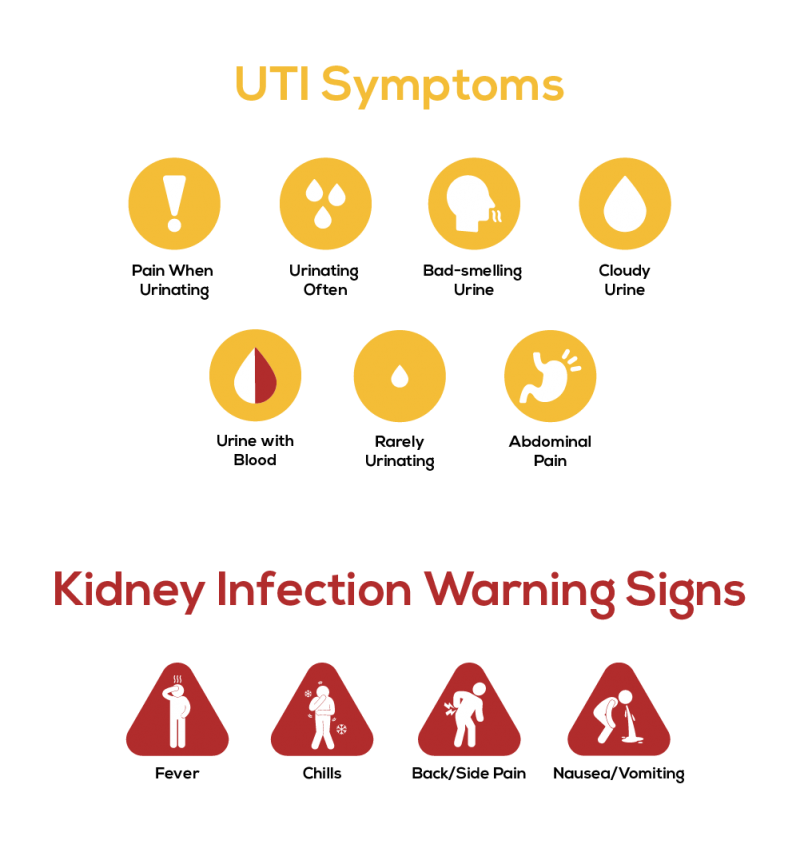Recognizing the Differences In Between Kidney Stones vs UTI: Trick Symptoms and Treatments
Recognizing the Differences In Between Kidney Stones vs UTI: Trick Symptoms and Treatments
Blog Article
Discovering the Symptoms and Causes of Kidney Stones in Contrast to Urinary System Tract Infections: A Detailed Guide
The exploration of kidney stones and urinary system system infections (UTIs) discloses a complicated interaction of signs and underlying causes that call for careful assessment. While both problems can result in hematuria, they provide distinctive medical functions and emerge from different etiological aspects. Recognizing the nuances of each condition is critical for effective diagnosis and monitoring. What are the vital differences in their signs, and exactly how might these educate therapy strategies? The response to these concerns might give vital insights into the prevention and treatment of these typical urological concerns.
Overview of Kidney Stones
Kidney rocks, additionally called kidney calculi, kind when particular materials in the pee crystallize and accumulation, causing the advancement of difficult deposits within the kidneys. These stones can vary in dimension, varying from a grain of sand to a golf round, and can be made up of different materials, the most common being calcium oxalate, uric acid, struvite, and cystine. The development of kidney rocks is affected by a number of elements, including nutritional behaviors, liquid intake, and genetic predisposition.
Signs and symptoms of kidney rocks may consist of serious pain in the back or side, blood in the pee, nausea or vomiting, and regular urination, particularly as the rock moves through the urinary system system. Diagnosis generally involves imaging researches such as ultrasound or CT scans, together with urinalysis to identify the rock's structure.
Treatment alternatives differ based on the dimension and sort of stone, along with the seriousness of symptoms (Kidney Stones vs UTI). Tiny stones might pass normally with increased liquid intake, while bigger stones may need medical treatments such as lithotripsy or surgical elimination. Comprehending the pathophysiology and risk elements related to kidney rocks is necessary for effective avoidance and management
Review of Urinary System Infections
Urinary tract infections (UTIs) are typical microbial infections that affect any type of component of the urinary system, consisting of the kidneys, ureters, bladder, and urethra. They mostly occur when germs, commonly from the stomach tract, enter the urinary system, leading to inflammation and infection.
The occurrence of UTIs is especially greater in females than men, mainly because of physiological distinctions, such as a much shorter urethra. Threat variables include sexual activity, certain contraceptive methods, urinary retention, and dehydration. The diagnosis of UTIs is typically confirmed with urine tests, which may expose the existence of germs, white blood cells, or red blood cells.

Signs And Symptoms of Kidney Stones
The discomfort connected with kidney rocks can show up in numerous methods, typically leading individuals to look for clinical interest. One of the most usual signs is serious pain, commonly local in the lower back or side, which may emit to the abdomen or groin. This pain, often defined as sharp or cramping, can happen all of a sudden and might change in intensity.
Additionally, people may experience hematuria, or blood in the pee, which can vary from microscopic total up to visible staining. This sign may be come with by modifications in urinary routines, such as enhanced regularity or seriousness, as well as pain during peeing. Nausea and throwing up are also widespread, typically resulting from the body's response to extreme pain.
Sometimes, individuals might experience fever and chills, specifically if a secondary infection establishes due to the obstruction triggered by the rocks. In general, the mix of extreme pain, hematuria, altered urinary system patterns, and stomach symptoms can offer substantial understanding into the presence of kidney stones, necessitating punctual medical assessment and treatment. Recognizing these symptoms is essential for timely medical diagnosis and reliable monitoring of the problem.
Signs of Urinary System System Infections
Infections within the urinary system system often present a series of unique signs that can dramatically influence life. One of the most usual signs and symptoms include a persistent urge to urinate, frequently accompanied by a burning sensation during urination, called dysuria. Individuals may also experience increased regularity of peeing, generating tiny quantities of pee each time.
Other useful source noteworthy symptoms include foul-smelling or over cast pee, which might suggest the presence of bacteria or pus. Sometimes, urine may show up pink or red because of the existence of blood, a condition called hematuria. In addition, people may experience pelvic discomfort or stress, which can additionally worsen the feeling of urgency.
Systemic signs and symptoms might also manifest, such as high temperature, chills, and fatigue, specifically if the infection has actually ascended to the kidneys. It is necessary to identify these signs early, as neglected urinary system system infections can result in more serious problems. Kidney Stones vs UTI. Motivate clinical attention is suggested when these signs are observed, permitting ideal diagnostic analysis and treatment to reduce pain and avoid more health and wellness concerns
Reasons For Each Problem
Often, kidney rocks and urinary tract infections develop from distinctive yet in some cases overlapping causes that can influence people differently. Dehydration, inadequate liquid consumption, and high-sodium diets can intensify these problems, advertising formation within the urinary tract.

Understanding these distinct reasons is critical for avoidance and therapy. Kidney Stones vs UTI. While way of life adjustments may mitigate the threat of kidney rocks, suitable hygiene and prompt therapy of urinary system tract infections are important for reducing their reappearance and connected problems
Conclusion
In recap, kidney rocks and urinary system infections existing distinct symptoms and underlying reasons. Kidney stones are characterized by extreme pain and metabolic factors, while urinary system tract infections primarily entail bacterial infections leading to urinary system urgency and pain. Both conditions can result in hematuria, their development systems vary substantially. Understanding these distinctions is important for reliable diagnosis and therapy, eventually boosting individual outcomes for those impacted by either problem.
The expedition of kidney stones and urinary system infections (UTIs) reveals a complicated interaction of symptoms and underlying causes that necessitate careful assessment.Urinary system tract infections (UTIs) are common microbial infections that affect find more any type of component of the urinary system, consisting of the kidneys, ureters, bladder, and urethra.Regularly, kidney rocks and urinary system tract infections occur from unique yet occasionally overlapping reasons that can influence people in different ways.In recap, kidney rocks and urinary system system infections existing distinctive signs and symptoms and underlying reasons. Kidney rocks are identified by extreme discomfort and metabolic factors, while urinary tract infections largely entail microbial infections leading to urinary system seriousness and pain.
Report this page